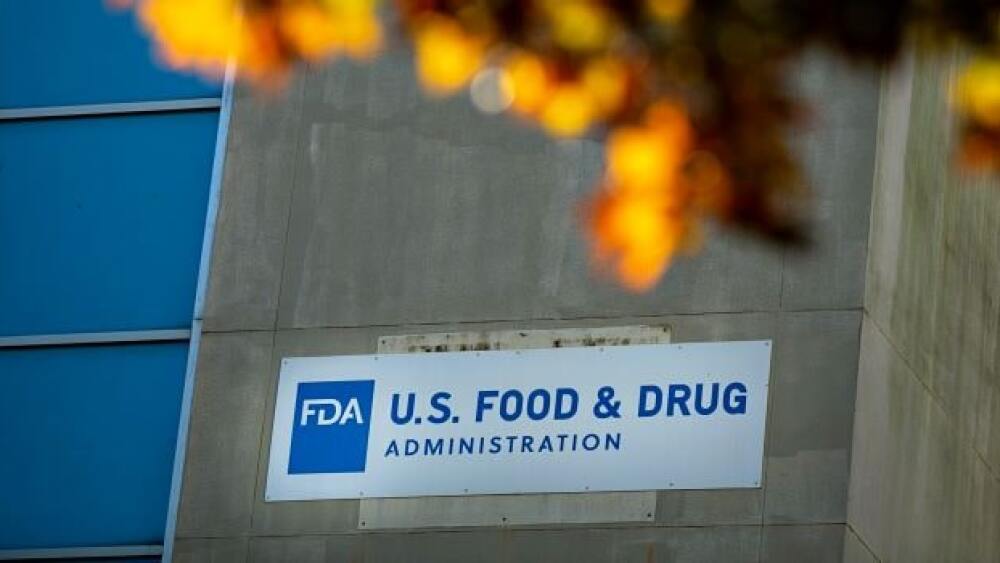The FDA has historically tended to keep more contentious relationships with some companies private. But recently, the agency appears to be publicly scolding some biopharma companies.
Jason Armond / Los Angeles Times via Getty Images
The U.S. Food and Drug Administration (FDA) has historically tended to keep more contentious relationships with some companies private. But recently, the FDA appears to be publicly scolding some biopharma companies over issues of concern.
Most recently, the FDA issued an untitled letter to Amgen over misbranding of Neulasta (pegfilgrastim) injection “resulting from a false or misleading promotional communication.” The company gives promotional materials that the FDA says make false or misleading claims about the benefit of Neulasta when dosed via the Onpro on-body injector compared to a prefilled syringe. Neulasta is the reference product for all biosimilar pegfilgrastim products approved by the FDA, and they’re only available as a prefilled syringe.
The FDA stated, “Amgen’s promotional communication cites an observational study and makes claims and presentations based on that study that create a misleading impression about the benefit of Neulasta by stating that there is a statistically significant higher risk of febrile neutropenia when pegfilgrastim is administered through a prefilled syringe compared to an Onpro on-body injector. FDA determined the claims and presentations are not supported due to multiple limitations of the study’s design and analytic strategy.”
In mid-May, a recent notable case was when the FDA published a “Statement on Leronlimab,” CytoDyn’s monoclonal antibody. The drug was initially being developed for HIV and cancer before the company started testing it for COVID-19. In a rare case of public reprimand, the FDA accused CytoDyn of misrepresenting its clinical trial data for leronlimab in COVID-19, particularly two clinical trials, CD10, in 86 mild-to-moderate COVID-19 patients, and CD12, which involved 394 patients, arrowing in on severe symptoms of respiratory symptoms in COVID-19.
In March, the company’s Phase III trial failed to hit the primary endpoint of reducing symptoms and was unable to hit all secondary endpoints, including decreasing mortality for COVID-19. But CytoDyn instead focused on a subgroup of 62 patients on mechanical ventilation, arguing that the drug caused a 24% decrease in all-cause mortality and a six-day reduction in hospitalization. They also issued a second press release describing an “age adjustment” analysis that the drug decreased mortality in older patients.
The FDA stated, “It has become clear that the data currently available do not support the clinical benefit of leronlimab for the treatment of COVID-19. None of these analyses met statistical significance when using established and reliable analytical methods that correct for multiple comparisons.”
An in April, the FDA sent a notice of noncompliance to Acceleron Pharma, alleging the company had failed to publish a summary of study data for its cancer combination therapy dalantercept and axitinib in the ClinicalTrials.gov online database. The FDA also threatened the company with a $10,000 fine or criminal prosecution if it didn’t post the result on the website within 30 days.
Federal law requires companies to post a summary of their trial results on the ClnicalTrials.gov website within one year of study completion. In August 2020, the agency described its approach and outlined how it identifies a company that failed to submit its trial registration and/or summary results to the databank. Since that mandate was implemented, the agency had sent over 40 pre-notices of noncompliance, primarily verbal warnings.
In the case of the duo therapy, the combination failed clinical trials, and Acceleron abandoned the drug before the noncompliance letter. But because it had not issued the summary result, it was facing a fine or criminal proceedings.
In the agency’s letter, it wrote, “The FDA takes its role in enforcing the ClinicalTrials.gov registration and results information submission requirements extremely seriously and we will continue to encourage voluntary compliance with these requirements. When necessary, the FDA will take appropriate actions to help ensure that required information is available on ClinicalTrials.gov as required by law and for the benefit of clinical trial participants and public health.”
Although the agency may be upping its public criticism of biopharma companies, the FDA has also become the center of serious criticism and turmoil over its approval of Biogen’s Alzheimer’s drug Aduhelm. The agency approved it despite its own Peripheral and Central Nervous System Drugs Advisory Committee voting strongly against it, and shifting from a clinical benefit endpoint to a surrogate biomarker endpoint utilizing an accelerated approval process. This resulted in three of the adcom members resigning in protest.
In addition, the agency’s acting commissioner, Janet Woodcock, has requested the independent Office of the Inspector General to investigate how the FDA and Biogen representatives interacted before the endorsement. Also, the House Committee on Oversight and Reform announced plans to investigate the approval and pricing of Aduhelm.
There are concerns that with the $56,000 price tag, and most of the millions of potential patients for the drug on Medicare, it could bankrupt the program. Even if about a third of the three to six million potential patients in the U.S. were given the drug, it would require spending more on Aduhelm alone than on Medicare Part B drugs in a single year together. It also prompted Biogen to change the label on the drug to define a narrower patient population.
The decision has recently prompted a series of publications in JAMA Internal Medicine and others by various parties, including the FDA, justifying the decision or outlining the potential pitfalls long-term over the decision.





